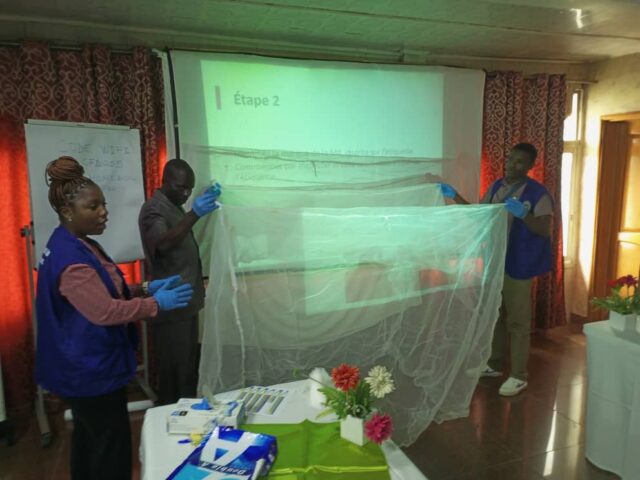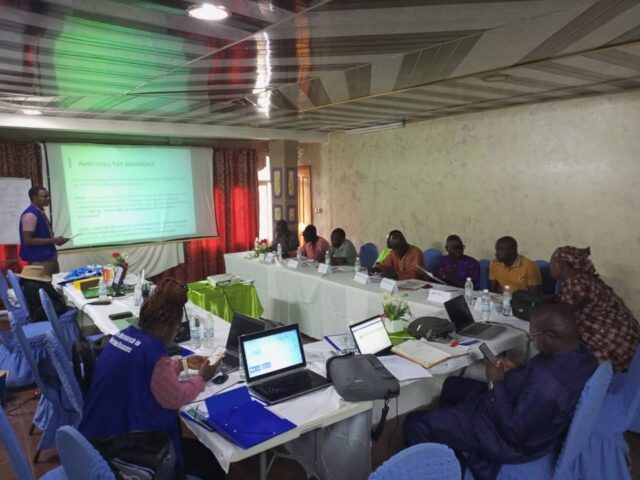From July 22-25, 2024, CRID staff facilitated a workshop in Garoua aimed at equipping community field agents with the necessary skills to effectively carry out the 24-month streamlined monitoring of the durability of Long-lasting insecticidal nets (LLINs).
 CRID staff facilitating the training
CRID staff facilitating the training
This workshop was organised by CRID in collaboration with Population Services International (PSI), PMI Evolve, and the National Malaria Control Programme. The workshop consisted of two sessions: training of trainers and training of community health workers (CHWs). The aim was to first equip the trainers with the necessary skills to make them capable of training the field agents afterwards. All this contributed to strengthening their capacity in the streamlined monitoring of the durability of Long-Lasting Insecticidal Nets (LLINs) in the Lagdo and Pitoa health districts in the North Region. The training session took place in a hybrid format with some online participants. The Training of Trainers workshop was facilitated by Jacky Raharinjatovo from PSI, while the training of field agents was facilitated by CRID staff. The comprehensive training covered various aspects of LLINs durability monitoring including summary of the previous monitoring cycle, hands-on training on hole assessment, LLIN cohort sampling, household localization using OsmAnd, and questionnaire administration. Participants also engaged in interactive role-playing exercises to practice their skills. CRID’s training team was composed of Nnamdi Dum-Buo (social scientist), Yvan Fotso Toguem, Sonia Yipmo, and Achille Binyang (all doctoral students).
 Participants receiving courses
Participants receiving courses
It is important to note that CHWs are frontline health auxiliary workers who have a close understanding of the community they serve. This relationship enables them to serve as a link between health services and the community concerned, facilitating access to services and improving the quality and cultural competence of service delivery. CHWs play a vital role in ensuring that everyone can access healthcare, no matter where they live or who they are. By investing in the training and education of CHWs, CRID is participating to ensuring that these frontline workers are equipped with the skills and knowledge they need to make a meaningful impact in their communities.






